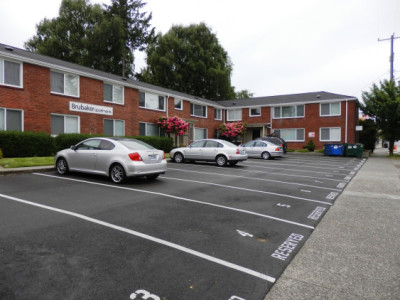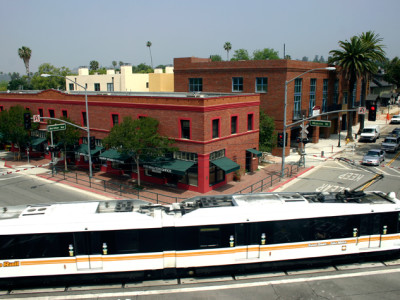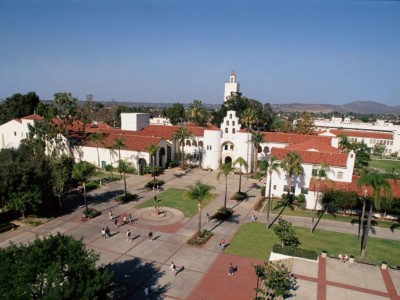Land Use
The Uneasy Case for NIMBYism
A Growing Class Conflict Lurks Underneath the Land Use Debate
Paul Krugman is turning his attention to housing affordability, and the results as usual are salutary. When discussing the skyrocketing cost of housing in New York City, he observes: There’s still room to build, even in New York, especially upward. Yet while there is something of a building boom in the city, it’s far smaller …
Continue reading “The Uneasy Case for NIMBYism”
CONTINUE READINGNIMBYs Gone Wild!!
New Proposed Initiative Would Make Los Angeles a BANANA Republic
Los Angeles is in the midst of an affordable housing crisis: the city’s renters pay on average nearly half of their disposable income on rent alone. This threatens the city’s social and economic health: you simply cannot have a great city and hollow out its middle class. But NIMBYs never rest, and in the midst …
Continue reading “NIMBYs Gone Wild!!”
CONTINUE READINGMuddling Through on Land Use Reform
Will Reform of Parking Regulations Ever See the Light of Day?
More than half a century ago, Charles Lindblom described the policy-making process as “The Science of Muddling Through.” California just demonstrated this with a new law, AB 744 (Chau), that holds important potential but in and of itself will not change the landscape. (Here is the most recent bill analysis). The law says that for …
Continue reading “Muddling Through on Land Use Reform”
CONTINUE READINGRecreational marijuana legalization in California
Will a proposed ballot initiative on recreational marijuana legalization in California help the environment
In the wake of the enactment by the legislature of a regulatory structure for medical marijuana, it looks like voters in 2016 will probably be able to decide whether to legalize recreational use as well. Leading advocates for legalization of recreational marijuana have submitted a language for a ballot initiative to the California Secretary of …
Continue reading “Recreational marijuana legalization in California”
CONTINUE READINGNew Report: Grading California’s Rail Transit Station Areas
Next 10 releases Berkeley Law study on transit-oriented development
If we build it, they will come. For many years, that was the mantra of rail transit planners. Just build the rail line, and development will happen around the stations. And then more people will ride, and the system will be a good investment. But in California, too often that hasn’t been the case. Much …
Continue reading “New Report: Grading California’s Rail Transit Station Areas”
CONTINUE READINGEvangelicals Versus Property Rights
Guess who invented the idea that property rights evolve with changing social values?
Today, evangelical Christians tend to be aligned with conservatives in defense of private property. But that was not always true. In the 19th and early 20th Centuries, evangelicals launched a major attack on property rights. As historian John Compton documents in a recent book, they also adopted the idea of the “living Constitution” to justify …
Continue reading “Evangelicals Versus Property Rights”
CONTINUE READINGMixed results in CA medical marijuana legislation
New state law to regulate medical marijuana makes important environmental progress, still much to be done
California is moving towards marijuana legalization. This is a good and important thing for a whole host of reasons, but one important reason is the environmental impact of unregulated and illegal marijuana cultivation on the environment – something that has been discussed both in the news and here on Legal Planet. Those impacts include diversion …
Continue reading “Mixed results in CA medical marijuana legislation”
CONTINUE READINGCA Supreme Court Rejects California State University’s CEQA Dodge–Again
Justices Hold CSU Can’t Pass the Buck re: Environmental Mitigation Measures Tied to Campus Expansion
In an important decision issued last week, the California Supreme Court forcefully rejected the California State University’s efforts to avoid paying for mitigation measures needed to offset the adverse environmental impacts associated with CSU’s ambitious expansion plans. That’s welcome if predictable news from a court that has in recent years been protective of the state’s bedrock …
Continue reading “CA Supreme Court Rejects California State University’s CEQA Dodge–Again”
CONTINUE READINGCalifornia Governor Jerry Brown: Environmental Saint or Sinner?
Brown’s National & International Environmental Reputation Disputed by Some California Environmentalists
California Governor Jerry Brown has had a most eventful 2015, especially when it comes to environmental policy. He started the year fresh from an overwhelming election victory last November, earning him an unprecedented fourth term as California’s chief executive. Brown began 2015 by declaring a state drought emergency and becoming California’s “educator-in-chief,” repeatedly warning state …
Continue reading “California Governor Jerry Brown: Environmental Saint or Sinner?”
CONTINUE READINGTragedy of the Commons–California Drought-Style
State Farmers Planting New Almond Orchards Despite Critical Water Shortages
Traveling through California’s drought-striken San Joaquin Valley repeatedly over the past year, I’ve been surprised and disheartened to see that Valley farmers continue to convert their agricultural fields to newly-planted almond orchards. (My anecdotal observations have been confirmed by various recent press accounts.) This development is a striking, current example of Garrett Hardin’s Tragedy of …
Continue reading “Tragedy of the Commons–California Drought-Style”
CONTINUE READING










